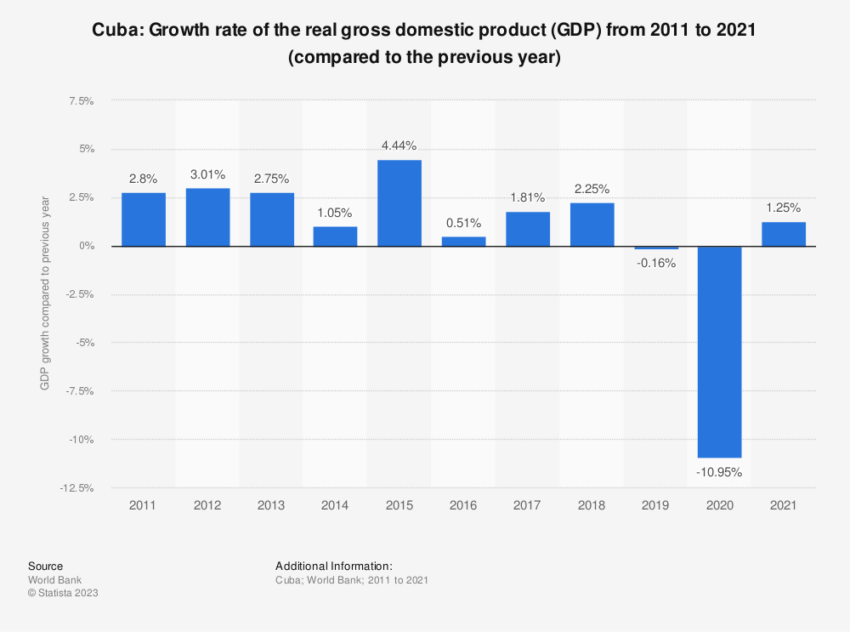Cryptocurrencies have evolved beyond their original purpose as digital currencies, demonstrating that Bitcoin saves lives and supports communities in difficult situations globally.
Real-world applications of cryptocurrencies show how they contribute to financial inclusion as well as economic stability and empower marginalized communities in the face of adversity.
Bitcoin offers refuge from economic crises
As the Turkish Lira sees a steep drop in value, Turkish citizens are piling into Bitcoin and Tether. They are desperately looking for ways to protect their savings and maintain their purchasing power.
The growing interest in cryptocurrencies in Turkey has led to an increase in crypto-related businesses and trading platforms, catering to the growing demand for alternative financial instruments.
Likewise, the economic crisis and hyperinflation in Venezuela have forced its citizens to look for other ways to preserve their wealth. Many Venezuelans have turned to Bitcoin to protect their savings as the national currency, the bolivar, continues to decline in value.
In a country where even basic necessities are in short supply, Bitcoin is saving lives, giving Venezuelans a lifeline to buy essentials and medical treatment.

The economic crisis in Lebanon has also left many citizens struggling to make ends meet. With the fall in the value of the local currency, some Lebanese have turned to Bitcoin mining as a source of income. Additionally, Lebanese citizens are using stablecoins like Tether to purchase groceries and essential goods, providing financial stability amid the chaos.
Argentina is another country where economic difficulties have caused citizens to seek alternative financial solutions. Cryptocurrency has become a popular choice for preserving wealth and protecting against the country’s runaway inflation. With restrictions on buying foreign currencies and a high rate of inflation, Argentines are increasingly relying on digital currencies to maintain their purchasing power.
Empower marginalized communities
In the aftermath of the Taliban takeover of Afghanistan, many women lost their jobs and their ability to support their families.
Cryptocurrencies have enabled Afghan women to receive donations around the world, providing much-needed financial support. This influx of funds has enabled these women to continue supporting their families in the face of adversity.
On the other hand, sex workers are often discriminated against by mainstream banks, leading to financial exclusion. Crypto offered an alternative, allowing sex workers to receive payments and manage their finances without relying on traditional banking systems.
The use of crypto-currencies allows these people to maintain their financial autonomy and protect their income from possible seizures or censorship.
Lifelines during political unrest
During the EndSARS protests in Nigeria, the government froze the bank accounts of key organizers. Protesters have turned to Bitcoin to fund their cause, bypassing government interference and continuing their fight for justice.
This use of cryptos highlights the power of decentralized financial systems to allow activists to maintain control of their funds and movements.
Around the world, political dissidents are increasingly turning to cryptocurrencies to fund their activities and avoid government interference. In authoritarian countries where financial repression is common, cryptos have emerged as a powerful tool for dissidents to receive funding and continue their fight for freedom.
Helping Refugees and Immigrants
Amid the Russian-Ukrainian crisis, many Ukrainians have fled their homes, seeking refuge in neighboring countries. Some refugees have relied on Bitcoin to secure their finances during this uncertain time.
A Ukrainian refugee, for example, fled to Poland with $2,000 worth of Bitcoin on a USB drive. Bitcoin has provided a lifeline and financial stability in times of upheaval.
Cryptocurrencies like Bitcoin have become a valuable tool for human rights activists operating in authoritarian countries. These digital currencies provide activists with a secure and private way to receive funds. Moreover, to support their work without fear of government intervention or censorship.
The decentralized nature of crypto allows greater financial freedom and autonomy for those fighting for human rights.
Cuba lays the groundwork to legalize crypto
Cuba has seen a resurgence in interest in crypto, largely driven by economic sanctions and an economic crisis. This prompted the Cuban government to explore the possibilities of digital currencies.
In August 2021, the Cuban government announced its intention to legalize cryptocurrency transactions. He acknowledged the need for a regulatory framework to manage the growing use of digital currencies in the country. The Central Bank of Cuba has been tasked with drafting the necessary regulations to govern the use of cryptography for commercial and financial transactions.

This decision marked a significant shift in the Cuban government’s stance on cryptocurrencies. Indeed, he recognized the potential benefits of digital currencies in promoting financial inclusion and economic stability.
Legalizing cryptocurrency transactions could provide Cubans with alternative ways to preserve their wealth. And circumvent the effects of economic sanctions and currency devaluation.
Bitcoin saves lives around the world
Cryptos have become a powerful tool, not only for financial investments, but also for saving lives. Not to mention empowering marginalized communities around the world.
From providing refuge in times of economic crisis to ensuring financial inclusion for those excluded from traditional banking systems, the potential of digital currencies goes far beyond their monetary value.
By exploring the various ways in which cryptocurrencies have impacted the lives of individuals around the world, we gain a better understanding of the true potential of these digital assets and their role in shaping a more equitable and secure world. more just.
Disclaimer
Following the guidelines of the Project Trust, this feature article presents the opinions and views of experts or individuals in the industry. BeInCrypto is dedicated to transparent reporting, but the opinions expressed in this article do not necessarily reflect those of BeInCrypto or its staff. Readers should independently verify the information and seek professional advice before making any decisions based on this content.